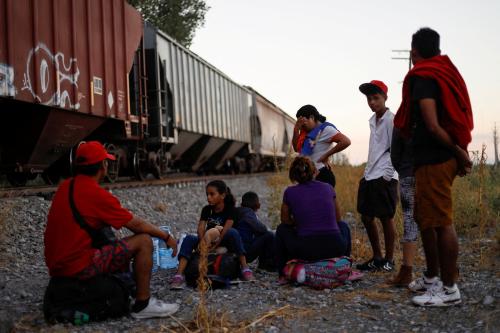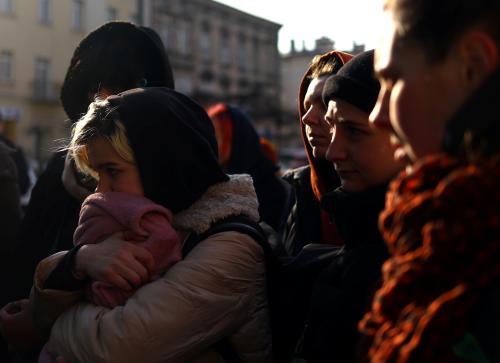When those working with internally displaced persons (IDPs) develop programs and policies without taking the time to listen to those most affected – the IDPs themselves – plans inevitably go wrong. A new report from The Brookings Institution – University of Bern Project on Internal Displacement finds that it is critical to listen to the voices of IDPs in order to ensure not only that their needs are met, but that lasting solutions are found for their displacement.
In preparing Listening to the Voices of the Displaced: Lessons Learned, author Roberta Cohen reviewed over 800 interviews with IDPs from different regions, stages of displacement and circumstances to analyze the concerns voiced by IDPs. She added to these the findings of the two Representatives of the UN Secretary-General on IDPs, Francis Deng and Walter Kälin, as well as the interviews of Project staff with IDPs.
The report finds that “Most decisions on situations of internal displacement still do not sufficiently reflect” the thinking of IDPs even though they “are the best placed to articulate their needs and evaluate the national, regional and international responses to those needs.”
“IDPs are the most authentic source of human rights and humanitarian information in emergencies,” Cohen observes. By listening to IDPs’ concerns, those seeking to resolve displacement will be better able to:
- see how the needs of IDPs differ from those of other war-affected populations;
- correct misinformation about IDP priorities;
- bring to light human rights abuses and humanitarian shortcomings;
- design responsive policies;
- reinforce peace processes; and
- give reconstruction and development projects a better chance of sustainability.
“As the Guiding Principles on Internal Displacement spell out, the displaced have a right to be consulted about decisions that affect their lives,” says Brookings-Bern Project co-director Elizabeth Ferris. “Moreover, listening to IDPs not only makes good programmatic sense, but is a way of affirming their dignity at a time when they have lost almost everything else.”
The study concludes with a series of recommendations for policy-makers and practitioners based on the concerns expressed by IDPs. These begin with a call for an international public information campaign to make clear that IDPs are persons uprooted by conflict as well as by natural disasters and development projects and that governments “can not ‘cherry pick’ which persons are IDPs and offer aid and compensation only to those who happen to fit their definition.”
Other recommendations focus on the need for greater solidarity with IDPs and acceptance of them as a category of concern, the lifting of stigmas associated with displacement, more formal consultation with those displaced, increased protection for their leaders and associations, steps to enhance their physical safety, including making better known national policies and laws benefiting them, and the greater involvement of regional organizations.
Still others highlight non-discriminatory access to aid, better relations with host communities, more adequate housing, education and employment opportunities, compensation for property, access to land and microcredit loans, and sustainable returns and the need to ensure that IDPs who do not wish to or cannot return home have alternative options supported by their governments and the international community.
While reports on IDPs often conclude with recommendations for further action, what is unusual about this report is that the issues and concerns come from the internally displaced persons themselves.



